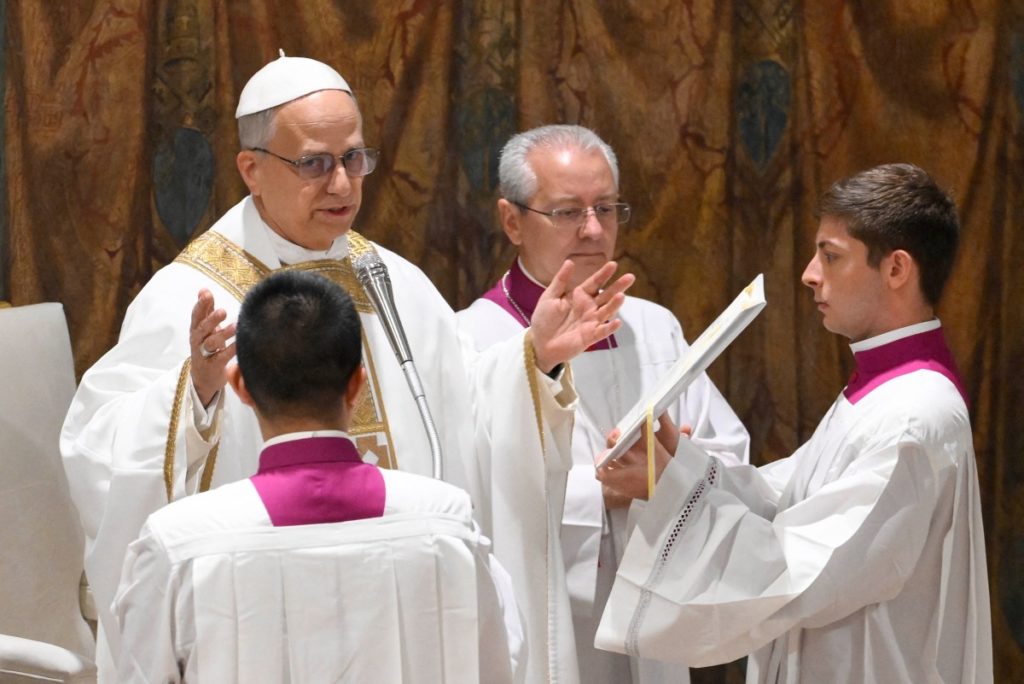Pope Leo XIV, formerly Chicago-born Cardinal Robert Francis Prevost, delivered his first homily as head of the Catholic Church on Friday, May 9, calling on the Church to urgently confront a global crisis of faith. Addressing cardinals in the Sistine Chapel one day after his election as the 267th pontiff, Leo spoke passionately about the need for renewed missionary outreach in societies where belief is ridiculed, marginalized, or replaced by materialism.
Warning that Christian faith is often viewed today as absurd or outdated, Leo lamented the growing secularism that leads many to put their trust in technology, money, power, and pleasure. He described a world where the loss of faith is accompanied by a broader erosion of meaning, mercy, and human dignity, pointing to societal wounds including the crisis of the family. “There are places or situations where it is not easy to preach the Gospel and bear witness to its truth, where believers are mocked, opposed, despised or at best tolerated and pitied,” the 69-year-old pontiff said in Italian, with Michelangelo’s “The Last Judgment” behind him. “Yet, precisely for this reason, they are the places where our missionary outreach is desperately needed.”
In a pointed critique of modern Christian culture, the pope warned against reducing Jesus to a mere charismatic leader or superman figure, saying such portrayals contribute to what he called “practical atheism” even among baptized Christians. In English, he opened his remarks with an appeal to unity among the cardinals, expressing his trust in their support as he begins his papacy.
Leo’s unexpected election by his fellow cardinals in a closed-door conclave on Thursday, May 8, surprised much of the world. A relatively new cardinal elevated only in 2023, Leo previously served as a missionary for two decades in Peru and is known in Rome as the “Latin Yankee.” Tens of thousands gathered in St Peter’s Square to greet him during his first public appearance from the papal balcony, many seeing him for the first time.
Though less globally recognized than his predecessor, the late Pope Francis, Leo’s missionary work and pastoral reputation in Peru earned him the admiration of both clergy and laypeople. Bishop Luis Alberto Barrera of El Callao praised Leo’s humility and dedication to the people during his time in the Andean nation. In his hometown of Chicago, locals celebrated the ascension of the former altar boy with roots in the city’s working-class South Side, even sparking debates over his preferred baseball team, which his brother later confirmed was the White Sox.
During his initial address to the faithful on Thursday, May 8, Leo echoed Francis’s commitment to peace and outreach, urging the Church to build bridges through dialogue and unity. His remarks came as world leaders welcomed the election of the first American pope in history, pledging cooperation on issues ranging from conflict resolution to global justice.
Leo faces a complex and divided Church, alongside a turbulent global landscape. He inherits unresolved crises, including the fallout from clerical sexual abuse scandals and internal debates over doctrine and reform. As Cardinal Prevost, he was known for championing the poor, defending workers, and speaking out against anti-immigration policies in the United States. Despite this, former President Donald Trump welcomed Leo’s election as a “great honour.”
Observers say Leo’s election signals a continuation of Francis’s progressive legacy, with a more soft-spoken tone. Italian Cardinal Gianfranco Ravasi described him as “a very simple person, intensely kind,” in contrast to more confrontational figures. Over the coming days, Leo’s actions and messages will be closely watched as he begins to shape the direction of the Church in a new chapter of its 2,000-year history.

